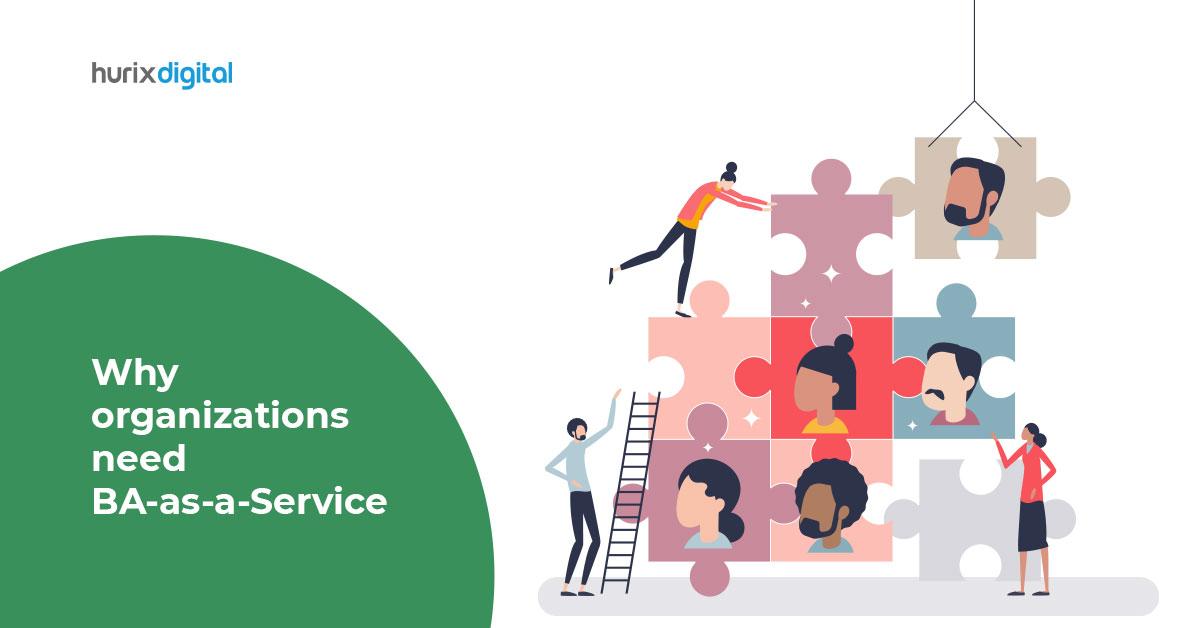
Why Organizations Need Business Analysis As A Service (BAaaS)?
Summary
This article discusses the importance of Business Analysis as a Service, explaining how it can help organizations make informed decisions and optimize their operations.
Competition among enterprises in this age of start-ups is fierce. Businesses must re-evaluate their operations, processes, and ethics. This evaluation can assist companies in improving their ways and flourishing in the industry.
Business Analysis As A Service (BAaaS) can be a starting point for a project that makes a difference by analyzing and developing a clear concept of software application/product. BAaaS is a means of delivering value to customers. Successful BA services begin with an understanding of the customer needs, pain points, and recommend the best possible solution.
Table of Contents:
- Why is BA AS A Service needed?
- Top 4 benefits that companies can enjoy by leveraging BaaS.
1. Cost-Effective Solution
2. Access to Expertise
3. Scalability
4. Focus on Core Business Activities - Conclusion
BAaaS is responsible for bridging the gap between stakeholders and the development team by assessing processes, setting clear goals, and identifying requirements for software solutions.
Why is Business Analysis As A Service (BAaaS) needed?
In a Business Analysis As A Service (BAaaS), BAs work to locate needs for change, draft strategies to deliver the goals and objectives, and work closely with management teams to define efficiency and design solutions to drive the company’s growth. Also, BAs help customers to minimize the risk and achieve their goals by filling the gaps in requirement understanding and determining the project map effectively.
These days, IT projects become more complex, and customers need continuous and correct direction to deliver projects on time and within a budget. Relying on BAaaS, the customer can reach their goals and experience digital transformation faster than their competitors.
Below are cases when it is recommended to turn to Business Analysis-as-a-Service:
- Project Requirements are not clear
- Unstructured project documentation
- Evaluating new technologies and processes
Here are a few benefits that companies can enjoy by leveraging BaaS.
-
Cost-Effective Solution
Rather than hiring a full-time business analyst or consultant, companies can leverage BaaS to access top talent on a project-by-project basis. This allows companies to save money on salaries, benefits, and other costs associated with hiring a full-time employee.
-
Access to Expertise
Whether a company is looking to improve its supply chain management, increase efficiency in their operations, or develop a new product, BaaS providers can offer access to the right talent and experience to get the job done.
-
Scalability
BaaS also offers scalability for companies. As a company’s needs change, they can easily scale up or down their use of BaaS to meet their requirements. For example, a company may need additional business analysis support during a product launch or other major project, and then reduce their usage once the project is complete.
-
Focus on Core Business Activities
By leveraging BaaS, companies can free up internal resources to focus on their core business activities. This allows companies to allocate resources more effectively and efficiently, improving their overall performance and competitiveness in the marketplace.
Conclusion
In conclusion, Business Analysis as a Service is a valuable resource for companies looking to improve their operations and bottom line. By leveraging BaaS, companies can access expertise, advanced tools, and technologies, while also saving money and freeing up internal resources. If your company is looking to take its operations to the next level, consider leveraging BaaS as a part of your business strategy.









